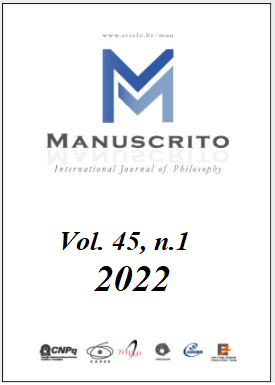Resumo
Infiltration of a word’s meaning by world-knowledge is argued to be consistent with the semiological principle. While acknowledging variability in what people know about elephants, there is a common core of what everybody knows that we know we can evoke in anybody’s mind; this constitutes the meaning of the word “elephant”. Regarding truth-conditional semantics, to say that the difference between “dog” and canis familiaris “is not a semantic difference; it is not a difference in what they mean” is to equate meaning with truth-value. This would entail that the complex NP direct object in “I took the four-legged fur-bearing carnivorous animal that barks out for a walk” would have the same meaning as the noun “dog”. From a linguistic point of view, this is completely indefensible. My criticism that the truth-conditional approach erroneously takes sentences to be the basic sign/meaning unit is not obviated by the fact that truth-conditional semantics treats sentence meaning as compositional, the point being that sentences are clearly not pairings of sounds with meanings since they do not have stable meanings which could be paired off with their linguistic forms. This is argued to be the case even if one defines meaning as Logical Form.
Referências
Condit, C. M. (2010), “Public Understandings of Genetics and Health”, Clinical Genetics 77, 1-9.
Condit, C. M. (2011), “Got”, Sociology Compass 5, 618-635.
Duffley, P. J. (2021), “Logical Form: Not Logical Enough for Logic, Not Linguistic Enough for Linguistics”, Journal of Pragmatics 182, 163-175.
Hornstein, N. (1995), Logical Form. From GB to Minimalism, Cambridge, Cambridge University Press.
Iacona, A. (2018), Logical Form. Between Logic and Natural Language, Cham, Springer.
Krempel, R. (2022), "Linguistic Meanings Meet Linguistic Form", Manuscrito, v. 45, n. 1, 28-42.
Langacker, R. W. (1987), Foundations of Cognitive Grammar, Volume 1, Stanford, Stanford University Press.
Rémi-Giraud, S. (2008), “Mots courants et connaissances scientifiques”, in J. Lautrey, S. Rémi-Giraud, E. Sander and A. Tiberghien (Eds.), Les connaissances naïves, Paris, Armand-Colin, 154-192.
Vogh, K. and B. Courbon. (2018). “‘For me, it was very genetic’: usage de termes issus du domaine de la génétique dans le discours en ligne de diabétiques anglophones”, in C. Roche (Ed.), TOTh 2016. Terminologie & Ontologie: Théories et Applications, Chambery, Éditions de l’Université de Savoie, 83-103.

Este trabalho está licenciado sob uma licença Creative Commons Attribution 4.0 International License.
Copyright (c) 2022 Manuscrito: Revista Internacional de Filosofia


